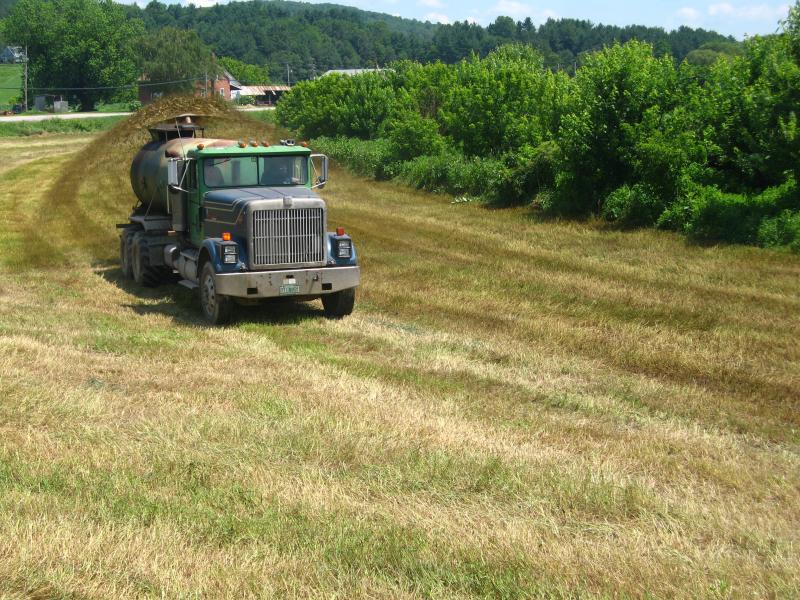
April 1, 2019 / Montpelier, VT – Vermont’s winter manure spreading ban ends today, April 1st, but with another cold and wet March having brought adverse field conditions to most of Vermont, the Vermont Agency of Agriculture, Food and Markets (VAAFM) is issuing a spring stewardship reminder to Vermont farmers and Custom Manure Applicators. VAAFM advises farmers and Custom Operators that water quality rules will restrict manure spreading activities until individual field conditions improve. The Required Agricultural Practices (RAPs) prohibit the application of manure to frozen or snow-covered fields, as well as on saturated ground where field conditions are conducive to runoff into Vermont’s waters.
While snow and ice have thawed in many areas of the state, some fields, especially in the northern part of that state, are still snow-covered and farmers are urged to take extra caution when spreading through the spring months. Timing of crop nutrient application is important not only to avoid runoff from farm fields, but also to achieve efficient nutrient uptake and maximize crop yield.
The RAPs outline that manure cannot be applied to fields that are frozen or snow-covered, nor to fields that are saturated, likely to runoff, or are conducive to any other off-site movement regardless of nutrient management plan recommendations.
Farmers concerned about storage capacity in their waste storage facilities this spring are encouraged to call the Agency to discuss options available for managing, transferring, or developing emergency manure spreading exemption plans. VAAFM has the following additional reminders for farmers this Spring:
- If you still have capacity in your manure pit, wait for the optimal weather and field conditions for spreading.
- If you do not have capacity in your pit, reach out to VAAFM to seek alternative management options or an exemption.
- Do not spread manure on saturated ground that will runoff to surface water or ditches, or before major rain events.
- After spreading any nutrient (liquid or solid manure, compost, or fertilizer) be sure to keep accurate records of the manure or nutrients applied.
When evaluating fields over the coming weeks to assess appropriate manure spreading conditions, the most important question that farmers and manure applicators should ask is: ‘When applied to this field, will manure runoff to surface water or a ditch?’ Individual field conditions will vary significantly across the State, and farmers need to assess their fields carefully and take action to ensure that they are in compliance with the rules and are protecting Vermont’s waterways.
Vermont’s winter manure spreading ban, which prohibits spreading between December 15 and April 1, began in 1995.
For more information about the RAPs, the winter manure spreading ban, or for recommendations regarding early season spreading practices, please visit: http://agriculture.vermont.gov/RAP
To request an emergency exemption to the prohibition from spreading manure on frozen or snow-covered ground, please contact your farm coordinator directly or call the VAAFM Water Quality Division at 802-828-2431.
Contact:
Ryan Patch
Water Quality Division Assistant Director
Vermont Agency of Agriculture, Food & Markets
802-272-0323
Ryan.Patch@Vermont.gov
